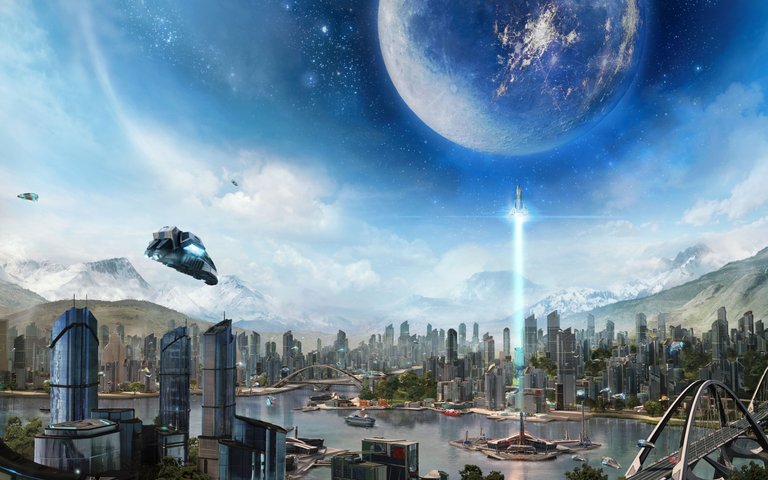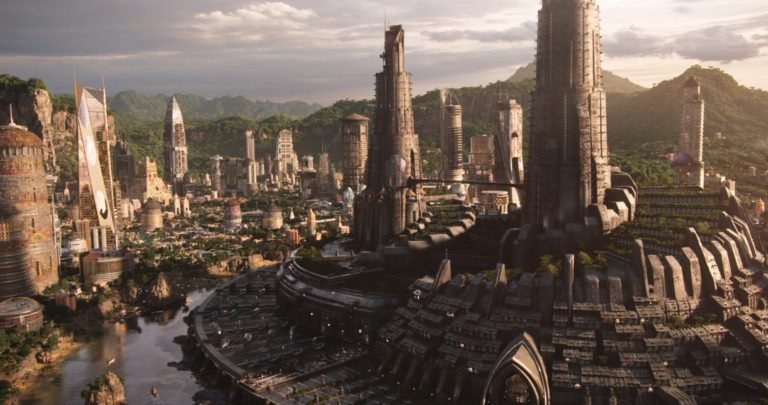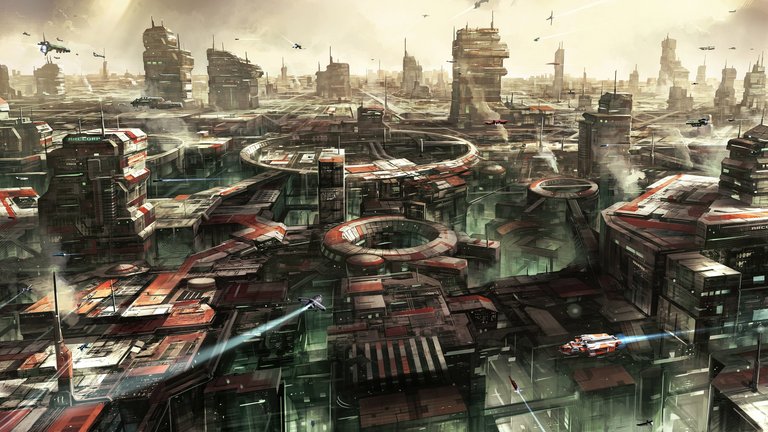The fascinating cyberpunk landscapes, Creating them.
When writing stories with a Dystopia setting, whether they are futuristic or not, there are a few aspects of building the world that the writer should keep in mind. Some worldbuilding concepts work better for different types of dystopias, but there are a few general rules that should serve you well to start out.
The first concept can be applied to writing in general, but it is still very important to keep in mind when focusing on the topic of dystopias: know your scope. If you're writing a story that's less than 1000 words, you clearly don't have that much room to cover the concepts of the world you're building. For those types of stories, it's best to pick one or two aspects of your dystopia and flesh those out within your framework. Trying to cram too much into too small space will cause problems for the pacing of your story, confusing the reader or making them lose interest in what they can understand. Pick an item of interest, form a structure around it, and keep the focus around that.
If you're writing a full novel, or there is no limit on your words or plot, this tenet applies somewhat less because you can control the scope more directly. You have more time and writing space to work with, so you can cover what you please and when you please. Still, getting wrapped up in minutiae can distract from the focus of your story.
The second concept is to be mindful of your tone when detailing events within the world. Contrary to what some might think, going as dark as possible and then some do not a good dystopia make. If nothing but awful things happen in your story, let alone your world, the reader will most likely tune out your story's events until they all blur together and interest is inevitably lost. While you don't necessarily need to jump directly to comedic relief, there needs to be a medium between suffering and joy that happens in your events. Even daily life events where not everything is terrible will go a long way in making sure the events don't blur together for your reader.
The third concept focuses on the building of your dystopia itself: make sure that the dystopian concepts you're using make sense in the context of your story. To a degree, it goes together with the previous two concepts. Knowing your scope will help you define the context of the story and the world, and being mindful of your tone will prevent you from introducing elements that are too jarring in your setting. How this concept applies to your worldbuilding varies depending on the core of your idea. If you're making a dystopia that's "descended" from the present, making sure your concepts have some tie to something occurring in the present will take you a long way. If you're focused on futuristic technology, define the limits of that technology and don't break them. Steampunk? Similar issue, except the aesthetics and expectations, is a bit more rigidly defined at times depending on your audience.
These guidelines can be met with careful planning, especially for longer stories. They can all be distilled into one tenet: know what you're doing. Decide on your focus, your tone, and what you intend to explore in your dystopian world before you charge off into your own brave new world. Shorter pieces do not necessarily require less planning; if anything, they require more structure to ensure that they have a payoff. The stronger your foundation, the stronger your writing and the better the payoff will be for the reader. Whether your goal is to shock, mesmerize, or simply entertain your reader, strong support goes a long way.



